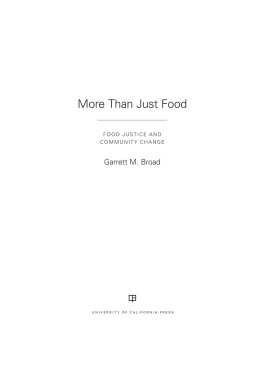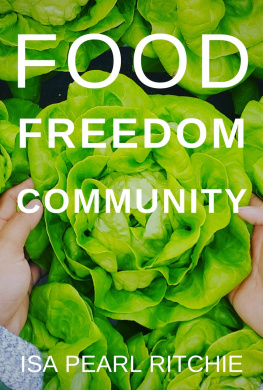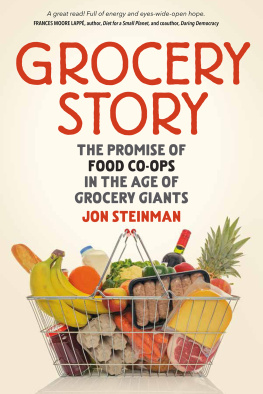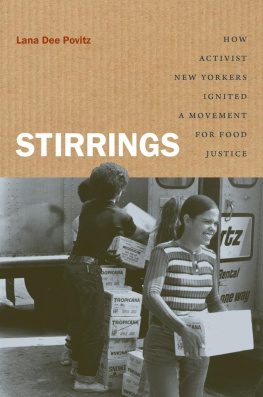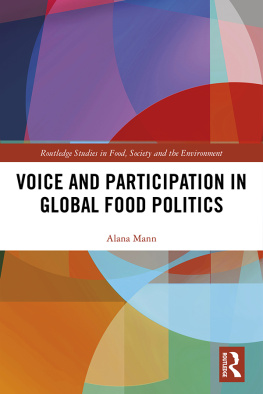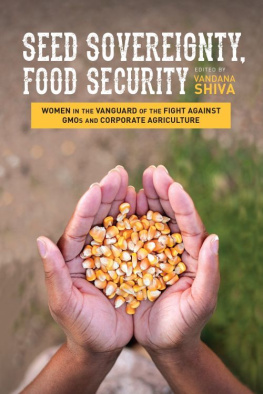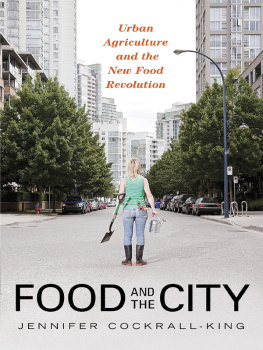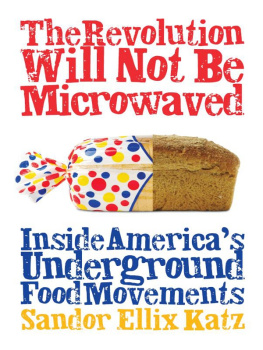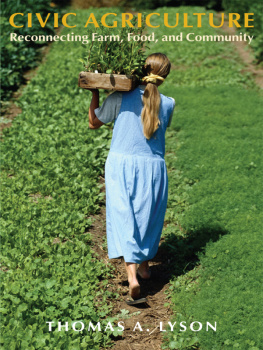ACKNOWLEDGMENTS
This project would not have been possible without the guidance, support, and insights of countless individuals and institutionsso many, in fact, that naming each and every one would require a book unto itself. In broad strokes, I am indebted to at least three main groups: collaborators and participants from the activist and practitioner community, colleagues and mentors from the academic community, and trusted friends and family from my personal life.
I am grateful to have had the chance to work with so many amazing people involved in food justice organizing, urban agriculture, and community development in the city of Los Angeles, across the United States, and around the world. The names, voices, and faces of these organizations and individuals form the foundation of this book. I thank them all for their time, dedication, and willingness to share their candid perspectives with me. Members of Community Services Unlimited (CSU) played an especially important role in this respect. Neelam Sharma, Heather Fenney Alexander, Dyane Pascall, and Lawrence DeFreitasalong with the rest of the CSU staff, board, and their community collaborators and organizational partnerswere all extremely gracious in allowing me to work with and learn from them.
I have tremendous appreciation for the faculty, staff, administration, and students at the University of Southern Californias Annenberg School for Communication and Journalism, where I received my PhD and wrote an earlier version of this work as part of my doctoral dissertation. Sandra Ball-Rokeach, who served as my faculty advisor, continues to be an admirable mentor and deserves an enormous amount of credit for helping to shape my scholarly approach. Sarah Banet-Weiser, Andrew Lakoff, Peter Clarke, and Larry Gross served on my graduate committees, offering invaluable feedback that helped turn disparate ideas into a cohesive project. I also learned a great deal from my graduate school colleaguesincluding past and present members of the Metamorphosis Project, members of my doctoral cohort, and the many others who I worked alongside in the basement offices. Special thanks, as well, go to Paul Lichterman, whose year-long ethnographic methods seminar in the Department of Sociology formed the initial basis for this research.
I was lucky to receive generous support from the University of Pennsylvanias Annenberg School for Communication as the George Gerbner Postdoctoral Fellow. The time, space, and intellectual community this position offered were vital to the completion of this book. I am particularly thankful to Michael Delli-Carpini and Carolyn Marvin for their institutional support. John Jackson, Sharrona Pearl, and Victor Pickard all provided useful commentary on my research, as did Andrew Calabrese during his visit to Philadelphia. I benefited from many conversations and interactions with faculty, staff, and students from across the Penn community. My experience at the University of Pennsylvania also helped me land a spectacular job as an Assistant Professor at Fordham University in the Department of Communication and Media Studies. Thanks to Jacqueline Reich and all of my new colleagues at Fordham for being so welcoming, encouraging, and hospitable.
I am thrilled that this work is being published by the University of California Press. My editor, Kate Marshall, proved to be a great champion for this project. Thanks are also due to Stacy Eisenstark, Zuha Khan, Dore Brown, and Genevieve Thurston for their editorial assistance, to Darra Goldstein for including this work in the California Studies in Food and Culture series, and to the entire editorial and marketing teams at UC Press. Lewis Friedland, Leda Cooks, and two anonymous reviewers provided essential feedback on draft submissions. I am grateful, as well, to Sahra Sulaiman, Heng Leng, and Nicole Samay for allowing us to include their photos and artwork in this publication.
From my earliest age, my family helped establish a core value system that has always served me well. I am forever grateful to my parents, Mindy Fineberg Broad and Spencer Broad, as well as to my brother, Matthew Broad, for being wonderful role models. I am proud to carry on a tradition of learning and teaching established by my grandfather, Lester Broad. Countless other family members and friends, some of them living and some no longer with us, have served as important inspirations. Last, but certainly not least, I am thankful to the newest member of my familymy wife, Janelle Stetzfor always reminding me how essential it is to have fun.
Despite the help of all of these influential peopleand I could go on to list moreI should note that any errors or omissions in this work are entirely my responsibility.
Introduction
FOOD JUSTICE AND COMMUNITY CHANGE
Weve always been involved in food, because food is a very basic necessity, and its the stuff that revolutions are made of.
DAVID HILLIARD , former Chief of Staff, Black Panther Party
A few weeks into filming the second season of his ABC reality television show, Jamie Olivers Food Revolution, celebrity chef Jamie Oliver had his permit to film in the Los Angeles Unified School District (LAUSD) fully revoked. After having been granted initial permission to film culinary classes at West Adams Preparatory High School in Central Los Angeles, Oliver had been hoping to set up shop a few miles away, at South Los Angeless Manual Arts High School. The LAUSD, however, had second thoughts. If you look at the last series [Oliver] did in Huntington, West Virginia, it was full of conflict and drama, and were not interested in that, Robert Alaniz, a media relations official with the LAUSD, was quoted as saying.

